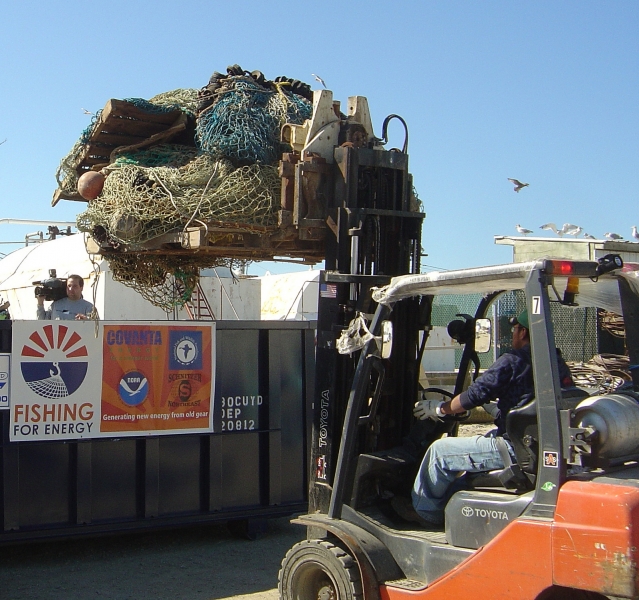
Today, a NOAA Marine Debris Program partner, the National Fish and Wildlife Foundation (NFWF), announced 14 grants totaling $121,700 to prevent the accumulation of derelict fishing gear, or fishing gear that is lost, abandoned, or discarded in the marine environment, in port communities in U.S. coastal waters. These grants were awarded as part of the Fishing for Energy Program and the NOAA Marine Debris Program is pleased to be part of this collaboration, along with NFWF, Covanta, and Schnitzer Steel.
The 14 grants will support ports to install collection bins at convenient and strategic locations, providing fishing communities a free way to dispose of old or unused fishing gear. Gear collected through the Fishing for Energy Bin Program is first sorted for metals recycling, and the remaining non-recyclable material is transported to waste-to-energy facilities and converted into energy. It is anticipated that these grants will annually prevent more than 200,000 pounds of fishing gear from potentially entering the coastal waters of Hawaii, Maine, Massachusetts, New Hampshire, New Jersey, and Washington.
The Fishing for Energy Program launched in 2008 and, prior to this year, the partnership provided the logistical and administrative support for the transport of gear from each port to a Schnitzer Steel recycling and Covanta energy facility. In recent years, the partnership has grown and this year marks the inaugural round of a new model in which the Fishing for Energy Bin Program now provides these small financial awards directly to grantees to meet their disposal costs, and to potentially renew these awards as needed.
This new model provides greater flexibility for ports to participate in the Fishing for Energy Bin Program by allowing them to use additional recyclers and waste-to-energy facilities. These adjustments will allow for new locations to be added and will increase the amount of gear that can be collected and recycled.
The full announcement can be found here.
